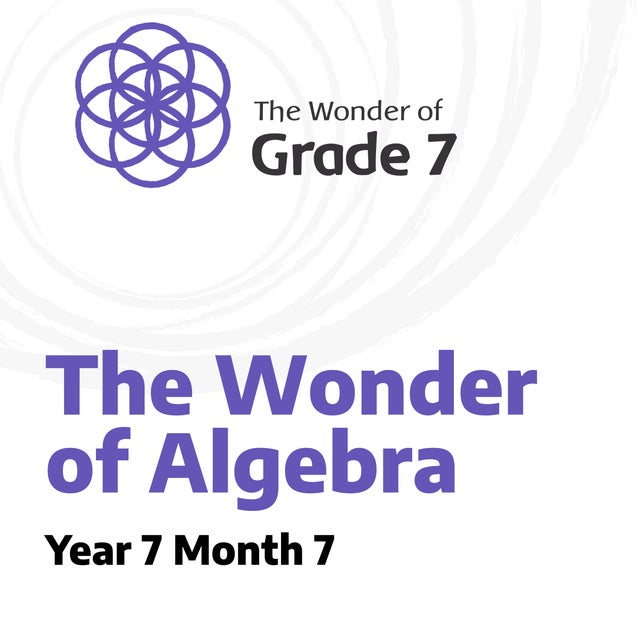- Unit Studies
- >
- Grade 7
- >
- Grade 7 Month 7 The Wonder of Algebra
Grade 7 Month 7 The Wonder of Algebra
SKU:
g7m7
CA$44.00
CA$44.00
Unavailable
per item
Students will be awakened to the golden rules of Algebra.
This purchase is for 1 month of curriculum and includes access to our members-only area with supporting documents, videos, resources and community.
Curriculum Areas/Learning Outcomes
Math: Concept 1: Decimals, fractions and percentages are used to represent and describe parts and wholes of numbers.
Connection: In this math- focused unit you will explore, express, and practice working daily with decimals and fractions in a variety of ways.
Concept 2: Computational fluency and flexibility with numbers extend to operations with integers and decimals.
Connection: Fluency takes practice. It is important to provide time for practice each day after major themes are introduced. Practice will occur every day as part of the morning lesson but will set the stage for additional practice working in a leveled math workbook each day.
Concept 3: Linear relations can be represented in many connected ways to identify regularities and make generalizations.
Connection: Working with exponents in the first week of the unit will reveal linear relations. In weeks two and three, Algebra will reveal additional relations as you work to simplify equations.
Social Studies: Concept: Religious and cultural practices that emerged during this period have endured and continue to influence people.
Connection: Your child will hear about how Algebra came to be, who discovered this way of relating numbers and how it has influenced us today. In the Flex Week, your child will complete a report about one of the founders of math/Algebra.
Connection: In this math- focused unit you will explore, express, and practice working daily with decimals and fractions in a variety of ways.
Concept 2: Computational fluency and flexibility with numbers extend to operations with integers and decimals.
Connection: Fluency takes practice. It is important to provide time for practice each day after major themes are introduced. Practice will occur every day as part of the morning lesson but will set the stage for additional practice working in a leveled math workbook each day.
Concept 3: Linear relations can be represented in many connected ways to identify regularities and make generalizations.
Connection: Working with exponents in the first week of the unit will reveal linear relations. In weeks two and three, Algebra will reveal additional relations as you work to simplify equations.
Social Studies: Concept: Religious and cultural practices that emerged during this period have endured and continue to influence people.
Connection: Your child will hear about how Algebra came to be, who discovered this way of relating numbers and how it has influenced us today. In the Flex Week, your child will complete a report about one of the founders of math/Algebra.
Curriculum Overview
This unit will introduce your child to Algebra. We’ll begin with a review of order of operations, exponents, and integers. Following this brief review, we’ll begin the study of Algebra with a look at the history behind it. Next, we’ll delve into six aspects of Algebra: variables, evaluating equations, combining like terms, distributive property, equivalent expressions and the seven equation types. By the end of the unit, your child will be able to solve Algebraic equations. This will be a launching point for future math in upper grades. Practice will be the key to success. When working in leveled math workbooks, be sure to cover ‘area of the circle’, and specifically the unique relationship between circumference and diameter of a circle. This aspect of geometry is not specifically covered in a DW unit but will also serve your child in future math. Remember that you will cover Algebra and its friends in 15 days. Days 16-20 of this unit make up your Flex Week. We suggest you continue with practice but leave it to you to decide how you use the Flex Week time. The project for Flex Week is a Biographical Research project. Skip to Day 16 for more details.

